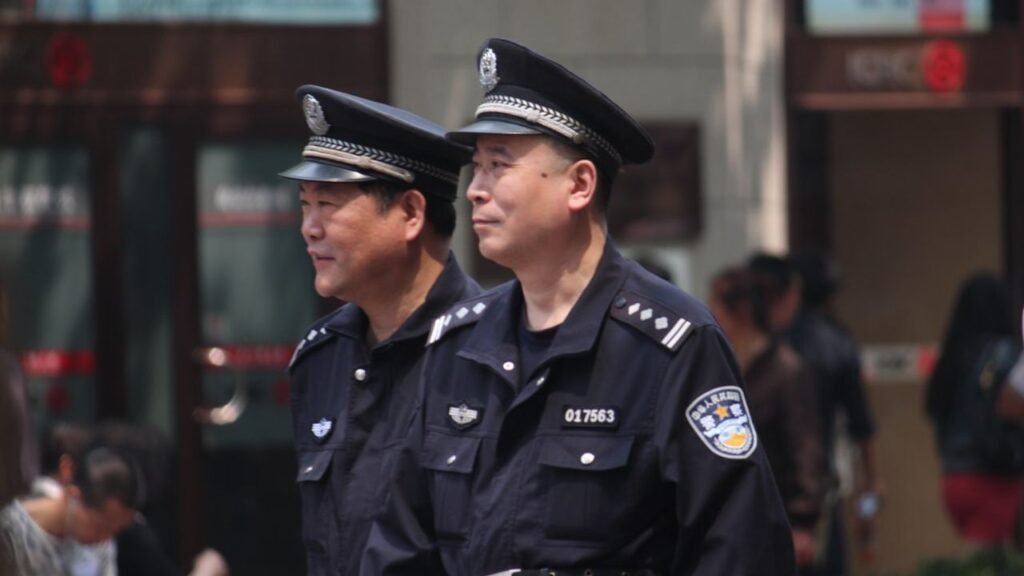The United States has raised concerns over the collaboration between Kiribati, a Pacific island nation, and Chinese security forces. Reports emerged that uniformed Chinese officers are working with Kiribati’s police in community policing and a crime database program. This development has prompted caution from the US, which has expressed reservations about the potential implications of security agreements with China on the autonomy of Pacific Island nations.
A spokesperson for the US State Department emphasized that the importation of security forces from the People’s Republic of China (PRC) could risk fueling regional and international tensions. The US does not tolerate China’s attempts to establish police stations worldwide as part of its “transnational repression efforts.” China’s renewed push to expand security ties in the Pacific Islands is particularly concerning, posing a challenge to the US in the region.
Kiribati’s strategic importance cannot be ignored. It is relatively close to Hawaii and possesses one of the largest exclusive economic zones in the world, covering over 1.35 million square miles of the Pacific.
Furthermore, Kiribati hosts a Japanese satellite tracking station, and China has expressed intentions to rebuild a World War II US military airstrip on Kiribati’s Kanton Island, raising alarm in the US.
US lawmakers and officials have voiced their concerns regarding China’s growing influence in the Pacific, particularly in light of Kiribati’s collaboration with Chinese police. They worry that the presence of Chinese security forces signifies Beijing’s expanding reach in Pacific island countries, indicating an erosion of democracy and the increasing influence of the Chinese Communist Party.
Representative Raja Krishnamoorthi, the ranking member on the House Select Committee on the Strategic Competition Between the U.S. and the Chinese Communist Party, highlighted the need for increased engagement with Pacific partners like Kiribati to counter China’s malign influence. Representative Neal Dunn, a Florida Republican, also echoed these sentiments, emphasizing the potential trade and national security implications if the US fails to address China’s growing presence in the region.
Representative Ed Case acknowledged Kiribati’s desire for a consistent on-the-ground relationship with the United States. He recognized the region’s need for assistance in building capacity to address essential services. Other concerns raised by committee members revolve around the corrosive impact of depending on police forces from an authoritarian state that often disregards due process.
Chinese Police Presence in Kiribati and Pacific Security Dynamics
Chinese police have been actively involved in Kiribati, working alongside local police in community policing initiatives and assisting with the development of a crime database program. While Kiribati’s acting police commissioner emphasized that there is no Chinese police station in Kiribati, reports indicate that up to a dozen uniformed Chinese police officers arrived on a six-month rotation in 2022.
China’s efforts to expand security ties in the Pacific have not been limited to Kiribati alone. The Solomon Islands, another Pacific nation, has also seen the deployment of Chinese police since 2022 following a secret security pact between the two countries. This pact has faced criticism from the US and Australia as it undermines regional stability.
In recent years, China has positioned itself as a public safety partner for Pacific nations, often in times of instability. This has included providing police assistance and training as well as engaging in security cooperation. Papua New Guinea’s decision to reject a Chinese offer of police assistance and surveillance technology highlights the growing scrutiny and apprehension surrounding such partnerships between Pacific Island nations and China.
Implications of Chinese Police Collaboration in Kiribati
The collaboration between Kiribati and Chinese police raises concerns about China’s influence over the security of Pacific nations. China’s growing presence in the Pacific, particularly in strategic locations like Kiribati, represents a shift in regional security dynamics. The US and Australia, recognizing the implications of this development, have responded with measures to protect their positions and support their Pacific partners.
Efforts are underway to meet Kiribati’s security needs and assist its police service. Australia, for example, has donated two patrol boats and is supporting major upgrades to Kiribati’s policing infrastructure. These measures aim to strengthen local capacity and ensure that Kiribati is independent of Chinese assistance.
The situation in Kiribati serves as a reminder of the broader geopolitical competition between China and the US in the Pacific. As China seeks to expand its influence and establish security and trade deals in the region, the US and its allies are closely monitoring the situation and taking steps to counterbalance China’s growing presence.


